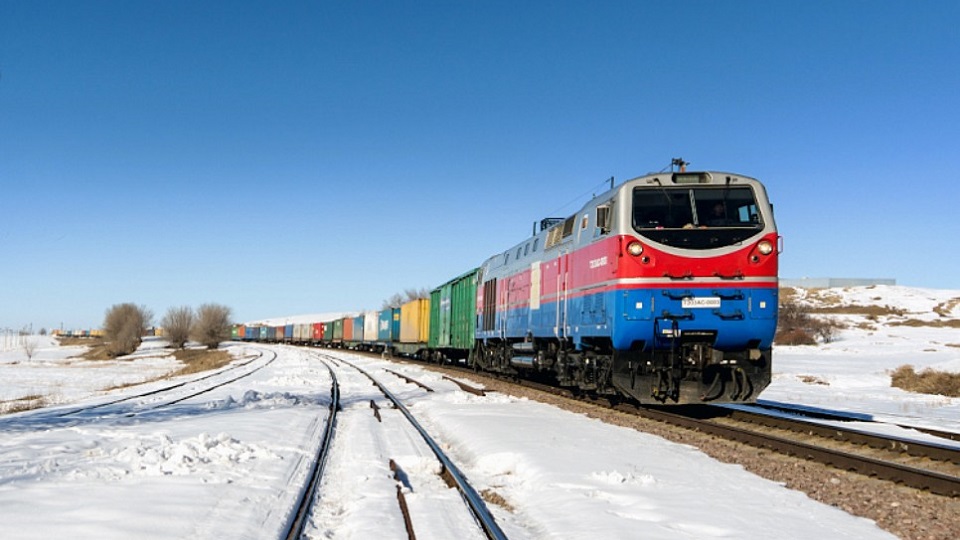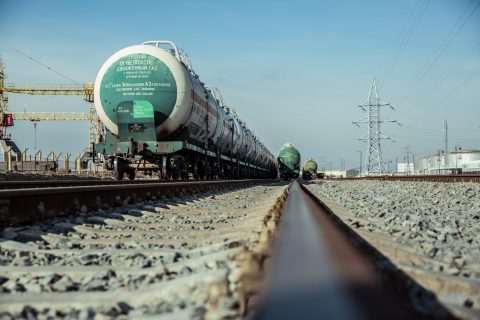Kazakhstan expects more containers from China

Over 3,000 container trains from China to Europe have run via Kazakhstan in 2019. This is 5 per cent more than in the previous year. KTZ Express, an intermodal subsidiary of Kazakhstan Railways, expects further growth of the container traffic to/from China in 2020. It forecasts that the volume of transit containers between China and Kazakhstan will increase by 15-20 per cent.
To achieve this goal, KTZ Express has already had a series of meetings with its Chinese partners. Among them are the Xi’an-based state logistics companies and two subsidiaries of China Railway – China Railway International Multimodal Transport Company (CRIMT) and China Railway Container Transport Company (CRCT).
Chinese companies prefer Kazakhstan for transit operation due to several advantages. “The increase in transportation on the routes via Kazakhstan is primarily caused by favourable tariffs, as well as by the high quality of service provided by KTZ Group”, said Madina Akhmetzhanova, Deputy General Director for Sales at KTZ Express. It is worth to note that the rail freight volumes between China and Kazakhstan amounted to 17.6 million tonnes in 2019, 25 per cent more compared to the 2018 figures.
Container trains
At the same time, the number of container trains running from China to Europe via Kazakhstan grows slower. Kazakhstan Railways (KTZ) handled 3,071 container trains from China to Europe in 2019. This is 5 per cent more than in the previous year. At the same time, the average train speed increased to 1,034 kilometres per day or 15 per cent more compared to 2018. These figures resulted from several steps implemented by Kazakhstan Railways and dedicated to the intensification of traffic. Inter alia, KTZ has shortened the time of train stops along their routes, and improved the change of locomotive crews and technical inspection.
Moreover, the Dostyk-Alashankou railway border crossing, the main point for Chinese transit, has improved its operations. From September 2019 it began to handle 14 freight trains per day. A month later this volume was increased to 17 trains per day. It is a record figure for this facility.
Also read:
You just read one of our premium articles free of charge
Want full access? Take advantage of our exclusive offer





